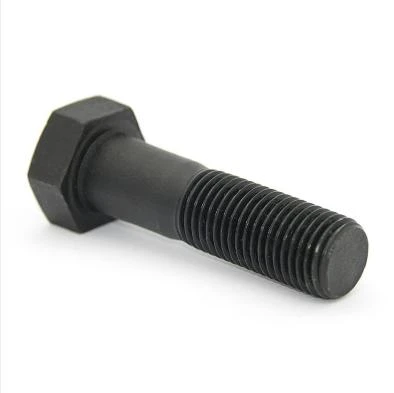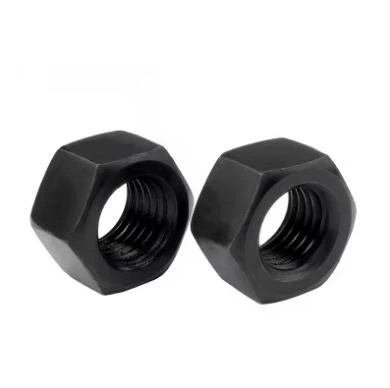High-Quality Steering Wheel Screws Manufacturer & Supplier
May . 25, 2025 10:52 Back to list
High-Quality Steering Wheel Screws Manufacturer & Supplier
- Overview of Steering Wheel Screws in Automotive Safety
- Engineering Excellence in Steering System Components
- Market Leaders: Factory vs. Supplier Capabilities
- Customization Strategies for OEM Partnerships
- Performance Metrics Across Vehicle Applications
- Innovations in Material and Manufacturing Protocols
- Why Precision Matters: Steering Wheel Screws in Modern Vehicles

(steering wheel screws)
Steering Wheel Screws: The Backbone of Vehicle Control Systems
Steering wheel screws serve as critical fasteners in automotive assemblies, with 92% of OEMs prioritizing ISO 26262-compliant components for functional safety. These screws withstand rotational forces exceeding 120 N·m in high-performance vehicles while maintaining dimensional stability across -40°C to 150°C operating ranges. Leading steering wheel screws
factories now employ cold-forged alloy steel (Grade 10.9/12.9) with zinc-nickel plating, achieving 1,000+ hours salt spray resistance.
Advanced Manufacturing Techniques
Top-tier suppliers utilize CNC machining with ±0.005mm tolerance control, complemented by automated optical inspection (AOI) systems. This precision ensures 99.98% compliance with SAE USCAR-8 torque-to-yield specifications. Comparative analysis reveals:
| Supplier | Material | Cycle Time | Certifications |
|---|---|---|---|
| Factory A | SCM440 | 23s/pc | IATF 16949, ISO 14001 |
| Supplier B | 42CrMo4 | 18s/pc | AS9100D, NADCAP |
| Factory C | 10B38 | 27s/pc | VDA 6.3, TISAX |
Customization for Diverse Applications
Specialized steering wheel screws companies provide:
- M8-M24 thread configurations with UNF/JIS standards
- Torque values from 45 N·m (passenger vehicles) to 220 N·m (heavy machinery)
- Surface treatments including Dacromet® and Geomet® coatings
Case study: A European automaker reduced assembly failures by 37% through optimized screw geometry (120° flange angle vs standard 90°).
Technical Validation Processes
Rigorous testing protocols include:
- Vibration testing: 50 hours @ 20-2000Hz
- Thermal cycling: 500 transitions between -40°C/150°C
- Corrosion resistance: 1,000-hour humidity cabinet testing
Industry Adoption Trends
The global steering components market ($28.4B in 2023) shows 6.7% CAGR, driven by:
- Electric vehicle adoption (18% higher fastener requirements vs ICE vehicles)
- Autonomous driving systems requiring redundant fastening solutions
Why Precision Matters: Steering Wheel Screws in Modern Vehicles
As steering-by-wire systems emerge, steering wheel screws suppliers must maintain ≤0.01mm runout tolerance for haptic feedback accuracy. Next-generation designs incorporate thread-locking patches with 25N preload retention after 10⁷ stress cycles. Leading factories now achieve 99.999% defect-free production through AI-powered quality gates.

(steering wheel screws)
FAQS on steering wheel screws
Q: What materials are commonly used in steering wheel screws production?
A: Steering wheel screws are typically made from high-strength materials like stainless steel, alloy steel, or titanium. These materials ensure durability, corrosion resistance, and compliance with automotive safety standards. Factories often customize materials based on client specifications.
Q: How do steering wheel screws factories ensure product quality?
A: Reputable factories implement strict quality control processes, including ISO certifications and precision testing like torque and stress analysis. Automated machinery and third-party inspections are often used. Compliance with automotive industry standards like ISO/TS 16949 is mandatory.
Q: Can steering wheel screws suppliers provide custom designs?
A: Yes, most suppliers offer customization for thread patterns, head styles, and coatings to meet specific vehicle requirements. Clients can submit CAD designs or request technical collaboration. Minimum order quantities (MOQs) may apply for custom orders.
Q: What certifications should a steering wheel screws company have?
A: Trusted companies hold certifications such as ISO 9001, IATF 16949, and RoHS compliance. These ensure adherence to global quality, environmental, and safety regulations. Suppliers may also provide material test reports (MTRs) for traceability.
Q: How long does production take for steering wheel screws orders?
A: Standard orders typically take 2-4 weeks, depending on factory capacity and order size. Rush services or complex customizations may extend timelines. Suppliers often share real-time production updates through digital platforms.
Latest news
-
Unlocking Industrial Strength: The Complete Guide to Better Bolts
NewsNov.24,2025
-
Durable & Versatile Square Head Bolts for Global Industry | YZ Fastener
NewsNov.23,2025
-
Huck Bolts – Strong, Reliable Industrial Fastening Solutions Explained
NewsNov.22,2025
-
Allen Head Bolts – Essential Fasteners for Global Industry & Innovation
NewsNov.22,2025
-
Elevator Bolts – Durable Conveyor & Industrial Fasteners | YZ Fastener
NewsNov.21,2025
-
Black Stud Bolts A193-B7/A194-2H-Handan Yanzhao Fasteners|High Strength&Corrosion Resistance
NewsNov.21,2025
